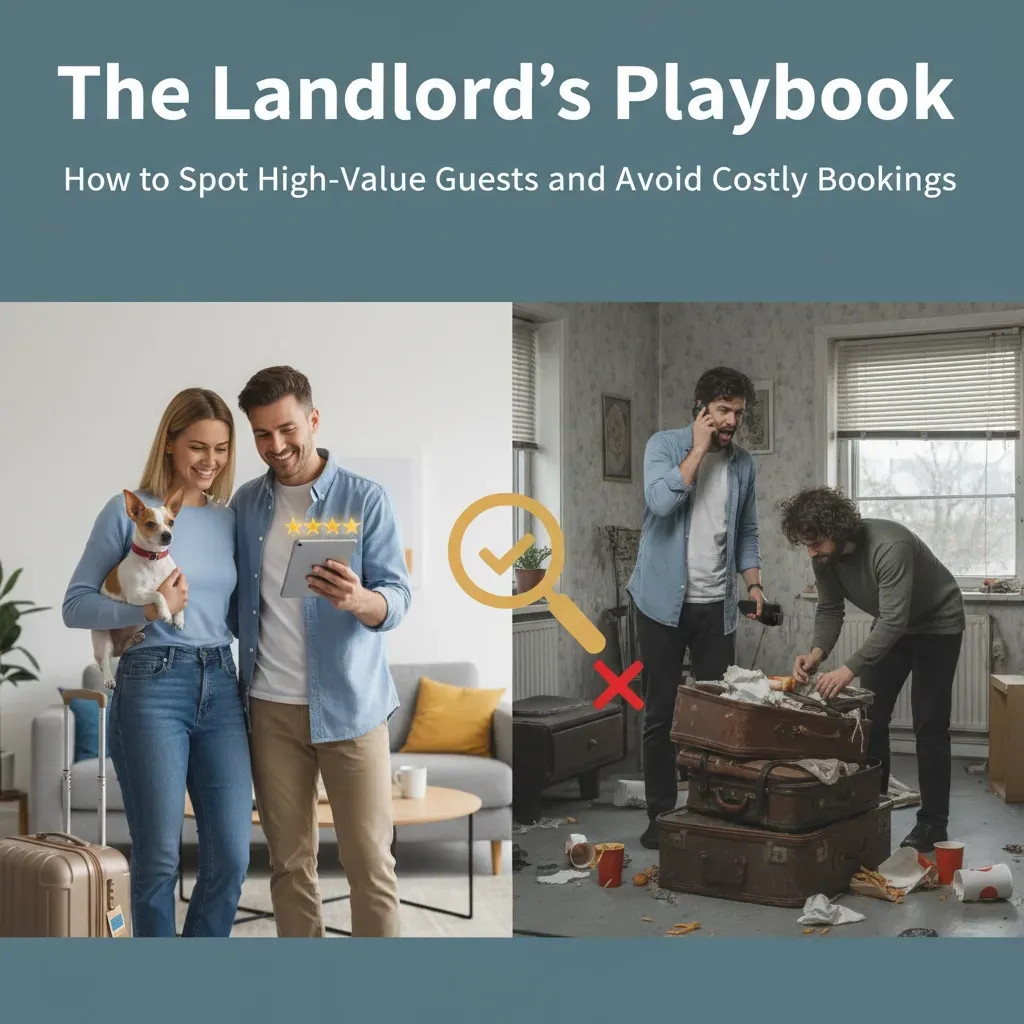
The Landlord's Playbook: How to Spot High-Value Guests and Avoid Costly Bookings
Why Short-Term Rental Guest Screening Is Different

The Anatomy of a High-Value Guest
Complete and Thoughtful Communication
Verified Profiles with History

Reasonable Booking Patterns
Red Flags That Signal Trouble
Evasive or Minimal Communication
New Profiles or Suspicious Reviews

Unusual Requests or Pushback on Rules
The Screening Conversation: What to Ask
Purpose and Plans
Group Dynamics

Technology Tools for Better Screening
Platform-Specific Features
Third-Party Screening Services
Setting Expectations Early
Clear House Rules
Pre-Arrival Communication
When to Trust Your Gut

